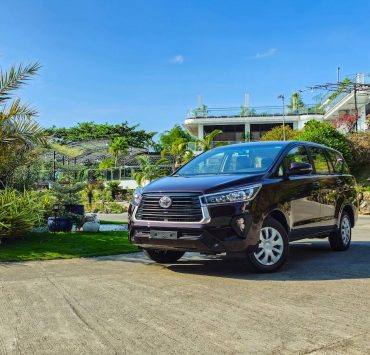US-PH Edca: A decade of defense
On the 28th of this month, we commemorate a historic milestone in the US-Philippines bilateral relationship—the 10th anniversary of the US-Philippines Enhanced Defense Cooperation Agreement (Edca). A decade ago, President Barack Obama and President Benigno S. Aquino III convened at the historic Malacañan in Manila to sign this pivotal agreement.
At a joint press conference, Obama declared, “We’re beginning an important new chapter,” expressing his optimism about the future of the US-Philippines alliance. His words resonated with a shared sense of purpose and commitment. Together, we pledged to bolster the Philippines’ defense capabilities and collaborate with other nations to uphold stability in the Indo-Pacific, particularly in the South China Sea (SCS).As the ranking member of the Indo-Pacific subcommittee in the US House of Representatives, and having worked alongside Obama, I reflect on the past decade with great pride in the achievements of our two countries’ partnership.
In 2014, the US and Philippine governments took a decisive step by signing Edca—a significant moment, especially considering the 32-year hiatus since the US military’s withdrawal from Clark Air Base and Subic Bay Naval Base in the Philippines. Edca breathed new life into our defense partnership, enabling the rotational presence of US military forces, aircraft, and ships at agreed locations within the Philippines.
Undoubtedly, the past decade has not been without challenges. However, resilience and determination have prevailed over any doubts about the growing US-Philippines military cooperation, and today, we find ourselves on a trajectory of progress.
Since the signing of the Edca in 2014, the US Department of Defense has allocated approximately P6.17 billion (equivalent to $109 million) for infrastructure projects at Edca sites. This includes over $59 million for airfield improvements at Basa Air Base to serve as a logistics hub for humanitarian assistance, disaster relief, and other crisis responses. Additionally, President Joe Biden’s Budget Request for Fiscal Year 2025 includes an additional $128 million for infrastructure projects. These strategic investments are expected to create more jobs and foster the growth of local businesses.
There is no more urgent moment to reinforce the bonds between our nations. Tensions are escalating in the SCS, with the People’s Republic of China intensifying its interference with Philippine supply and fishing vessels, including dangerous maneuvers and the shooting of lasers and water cannons. Beijing’s flagrant disregard for international rules, even those it has long benefited from, is evident in its unlawful maritime claims across the West Philippine Sea and the broader SCS. These actions directly threaten the sovereignty of the Philippines as a nation and the prosperity of its people.
During a White House summit on April 11, attended by Presidents Biden and Marcos, Biden reaffirmed that “any attack on Philippine aircraft, vessels, or armed forces in the South China Sea will invoke our Mutual Defense Treaty.” This declaration reinforces the special relationship between the US and the Philippines.
The Philippines holds a special place in the heart of the US as an ally for over seven decades. Today, more than four million Filipino-Americans call the US their home, underscoring the deep cultural and economic ties between our nations. Individuals like Caterina Fake, the cofounder of Flickr, have made significant impacts in the tech world, while Bruno Mars, the Grammy-winning singer-songwriter, and Saweetie, the rapper and singer from my own hometown of Sacramento, have captivated fans worldwide with their chart-topping hits.
In the California district I represent, there’s a vibrant Filipino-American community that enriches our local culture with its traditions and warmth. Filipino culture isn’t merely accepted, but embraced and celebrated in the US. And yes, I share in the joy of savoring Filipino delicacies—lumpia and halo-halo—they’re simply irresistible! The Philippines, with its rich heritage and humanity, has left an indelible mark on our collective consciousness.
“Bayanihan” a quintessential Filipino trait, embodies the spirit of community—helping one’s neighbor to lighten their burden, working together toward a common and noble purpose. As Biden reiterated, the US’ defense commitments to the Philippines are “ironclad.” In the spirit of bayanihan, it is time for us to work together to build an Indo-Pacific that is free, open, prosperous, and secure for all.
By Ami Bera
Rep. Ami Bera is the ranking Democratic Party member on the US House Subcommittee on the Indo-Pacific. The California congressman is also a member of the House Permanent Select Committee on Intelligence.

















